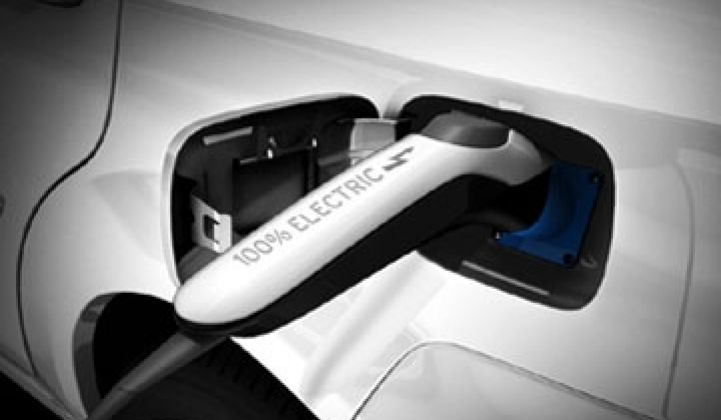Coda Automotive announced today that its all-electric sedan, coming toward the end of this year, will cost $44,900 before incentives. The car will be sold through company-owned dealerships in Santa Monica and the Bay Area. In the third quarter of next year, Coda will sell cars in Hawaii. Drivers can put down their $499 deposits now.
The sale price matches the $45,000 price Coda had named in 2009. In early 2010, however, the company said the price would be under $30,000 after incentives. The U.S. federal government offers a $7,500 tax credit on electric cars and California offers $5,000. (Hawaii gives a $4,500 credit.) That puts the price of the car at $32,400 in California. Thus, Coda did not meet its more aggressive, amended price target.
More ominously for the company, the sedan is more expensive than the Nissan Leaf, which will retail for $32,800 before incentives. Put another way, the Leaf is almost as cheap before incentives as the Coda is after incentives. And Nissan has a well-known brand name, plus years of automotive experience. The Coda has a 90-to-120-mile range, slightly higher than the 100-mile range of the Leaf. Coda's sedan also has a 33.8 kilowatt-hour battery, bigger than the 24 kilowatt-hour battery in the Leaf.
The Volt from General Motors costs $41,000 before incentives. The Volt may not quality for state-level credits, but even without state credits, the Volt is competitive with the Coda at these levels.
The price of Coda's car will likely decline as battery prices go down. Batteries remain one of the most expensive components in electric cars. Better Place execs say that car batteries can now be bought for delivery in 2012 for $400 a kilowatt hour, well below the $1,000 figure from 2007. Nonetheless, battery price declines will benefit better-known competitors like Nissan and Ford, too.
Is Coda a Chinese car or not? Coda CEO Kevin Czinger and I debated that back in March. The car is based around a gas-burning car on the roads of Beijing right now. It will also be manufactured in China. Czinger, however, pointed out that the car is based around a design from Japan and has been retrofitted by U.S. engineers for U.S. specifications. The battery will come from a joint venture between Coda and Lishen Power Battery that's backed by the Chinese government. But again, U.S. engineering and components play a crucial part, and the joint venture is planning to build a battery pack facility in the Midwest if it can get a DOE loan. If it does, Coda could become one of the first companies to enjoy the hefty financial support of both the U.S. and Chinese governments.
I asked car reviewers what they thought. One called it a Chinese car. Another didn't.



